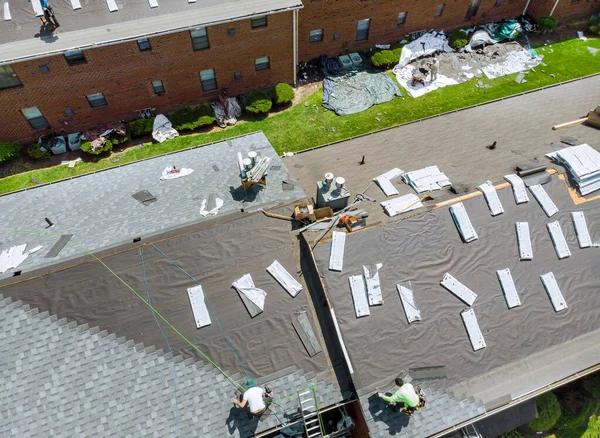Roof replacement is a significant investment for homeowners, and it’s essential to be aware of the new laws and regulations that may affect this process. These laws are put in place to ensure safety, quality of work, and environmental sustainability. They also protect homeowners from fraudulent contractors or subpar roofing materials.
One of the most important laws you should know about is the requirement for permits. Before starting any major home improvement project like roof replacement, you must obtain a permit from your local building department. This law ensures that all work meets local building codes and standards for safety. Failure to comply can result in hefty fines or even removal of the newly installed roof.
Another crucial law pertains to contractor licensing and insurance. Most states require roofing contractors to be licensed and insured before they can legally perform roof replacements. This protects homeowners by ensuring that their contractor has met certain training requirements, passed competency exams, carries liability insurance for accidents or damages on the job site, and provides workers’ compensation coverage for employees.
The third set of regulations revolves around energy efficiency standards established by Energy Star Program under Environmental Protection Agency (EPA). Roofs play a significant role in regulating a home’s temperature; therefore, using energy-efficient roofing materials not only reduces energy costs but also minimizes environmental impacts.
In addition to these federal laws, individual states have enacted specific statutes regarding roof replacements as well. For instance, some states mandate a “cool roof” policy where reflective roofing materials must be used in certain climates to reduce heat absorption and lower cooling costs during summer months.
Moreover, there are now strict regulations on waste disposal after completing roofing projects due to concerns about landfill space shortages and environmental pollution caused by improper disposal methods. Contractors are required by law to dispose of old shingles at approved recycling centers or landfills properly.
Lastly, there’s been an increased emphasis on worker safety during roof replacements with Occupational Safety & Health Administration (OSHA) implementing stricter guidelines regarding fall protection, tool safety, and proper training to prevent workplace accidents.
In conclusion, these laws are not just bureaucratic red tape but essential measures to ensure quality workmanship, protect homeowner interests, promote energy efficiency and environmental sustainability. As a homeowner planning for roof replacement omaha, it’s crucial to understand these laws so that you can make informed decisions and avoid potential legal issues down the road. Always hire a reputable contractor who is knowledgeable about current roofing laws and regulations in your area.
McCoy Roofing Omaha
11308 Q St, Omaha, NE 68137
402-251-2151





